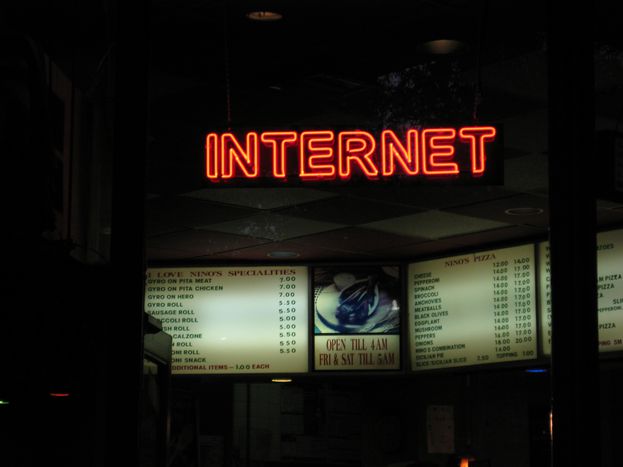
Law and Justice: An unbiased media? Bitch Please!
Published on
Translation by:
Joanna ParlakOnce upon a time there was a country encased beneath a huge dome. Its purpose was to shelter citizens from a cacophony of information blaring in from the outside world. Such "noise" was considered harmful and foreign. Under the dome, a single narration was broadcast, which spoke of a simple and uniform life. As it turned out, the dome was only made of air, and so the Internet leaked inside it.
Last week saw the announcement that the conservative Law and Justice (PiS) party –who currently hold a majority in both chambers of Polish parliament as well as the presidency under Andrzej Duda – has introduced a series of reforms to the country's media laws.
According to the amendments, managerial bodies and supervisory boards attached to state media institutions will from now on be appointed by the Minister of State Treasury, and not – as used to be the case – by a panel of radio and television personnel in consultation with the National Broadcasting Council.
The current Minister of State Treasury, Dawid Jackiewicz, has already appointed new CEOs to Polish TVP (Polish Television) and Polish Radio – Jacek Kurski and Barbara Stanislawczyk respectively, both of whom are sympathetic to the goals of Law and Justice. Over the coming week it is expected that many journalists and TV presenters will be dismissed and replaced by those more loyal to PiS.
In the opposition’s eyes, this decision turns Polish public media into a biased organisation lobbying for just one political party. The move has been internationally criticised by, amongst others: the Helsinki Foundation for Human Rights, the European Broadcasting Union, the Association of European Journalists, and Reporters without Borders. They have all notified the Council of Europe about the danger such policy presents to media freedom in Poland.
The move follows in the wake of Law and Justice's contoversial decision to replace five judges on the Constitutional Tribunal, previously appointed by PO (Civic Platform), with their own candidates. Opposition figures denounced the move, arguing that it does not comply with the Constitution. However in December, Parliament passed amendments to the law under which it became possible to re-elect the aforementioned judges.
Law and Justice’s ventures are even more brutal due to the fact that in both cases the amendments removed the period of vacatio legis. This refers to the obligatory delay between the publication of a legal act and its entering into force, which enables interested parties to familiarise themselves with the new regulations. With the latest round of changes this didn’t take place.
Law and Justice argue that both actions – concerning the Tribunal as well as the amendments to the media bill – were necessary in order to restore political balance to public institutions that, according to the party, were removed under the previous PO administration. In their eyes, the prior situation was limiting democratic decision-making.
Chipping away at the opposition
To what extent is it democratic to drown out the voice of the opposition? Were we not taught at school that the presence of an opposition – not only political, but above all ideological – provided a much needed check and balance?
Law and Justice’s behaviour recalls the logic of children playing hide and seek – their thinking is: "If I close my eyes, nobody will be able to see me." Do they think that by getting rid of high-profile figures in state institutions that are sympathetic to the opposition, then people stop thinking such opposition exists?
On the eve of the introduction of the amendments, the head of Andrzej Duda’s Chancellery – Malgorzata Sadurska – explained that the decision was dictated by a desire to transform Polish media into something more reliable, objective and credible. She used adjectives such as "national" and "unbiased", which in addition to being somewhat contradictory notions, are also marked by a high degree of idealism.
An unbiased media?
Bitch please.
Attempts to take control of the media by Law and Justice are yet another manifestation of the party’s disturbing desire to create not only a political, but an ideological, monolith in Poland.
Is this something Poles want? Do open-minded people who understand the benefit of debate really desire restrictions? What about people who like to travel and are eager to better understand the world? Who want to engage in self-improvement and decide things for themselves? Is this the desire of Poles who are more moved by the need to develop a tolerant society than an extra 500 zloty in child benefit? Is Law and Justice’s belief in the homogeneity of Polish society being reflected in reality?
Warning: People are not stupid. Many of them know foreign languages and have access to alternative information sources. Many can think critically. Dear PiS: you wanted to monopolise the media, but you appear to have forgotten that the Internet exists.
Granted, the Internet is a place where people watch videos of Kim Kardashian’s arse and Justin Bieber’s swag, buy clothes from ASOS and mess around on Chatroulette. But it's also the place where the Arab Spring and WikiLeaks began, and the place where you can join jihad. Conclusion: the power of the Internet should not be underestimated. It is everywhere and it sees everything.
That’s why I'm using it to send out an appeal for articles, a call for people to share opinions, and point out hypocrisy. If only to keep alive the spirit of contradiction.
Get in touch: [email protected]
Translated from Drogi PiSie, twoja wizja „bezstronnych” mediów trąci LOLem



